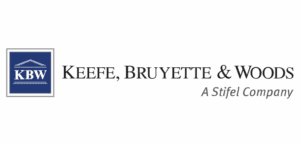Five Critical Issues for Employers Reporting 2023 ACA Compliance

According to the Affordable Care Act (ACA), applicable large employers (ALEs) are obligated to offer full-time employees and dependents affordable minimum essential health coverage. They must also report to the IRS information about the health coverage plans they offer.
Here are five critical issues employers should remember to ensure they are in compliance with the ACA reporting rules for 2023:
The Affordability Threshold Has Been Lowered for 2023
Employers that want to avoid employer- shared responsibility payments (ESRP) must ensure that the employee’s share of the cost of health coverage is deemed affordable. The affordability threshold is 9.12% for 2023, down from 9.61% in 2022.
Employers should keep this new threshold in mind when setting employee contributions for health coverage. If an employer offers health coverage that is not affordable, it may be subject to an ESRP.
Understand How Affordability Safe Harbors Work
To make sure all employers are subject to the same affordability test, the ACA created three “safe harbors” employers can us to determine if their health coverage meets the affordability rule. They are (1) the Form W-2 safe harbor, (2) the rate of pay safe harbor, and (3) the federal poverty line (FPL) safe harbor.
With the Form W-2 wages safe harbor, affordability is based on the employee’s W-2 wages for the most recent tax year.
With the rate of pay safe harbor, affordability is determined by how much the employee earns per hour on the first day of the plan year. After that, it is only adjusted if the employee’s pay rate declines during the period.
The FPL safe harbor considers affordability to be met if the employee’s required contribution per month does not exceed 9.5% of the federal poverty line for a single individual for the year. The total amount is divided by 12.
ESRP Penalties Are Rising
The Affordable Care Act‘s (ACA) Employer Shared Responsibility Provision (ESRP) continues to be a key compliance concern for employers. The provision requires ALEs to offer affordable health coverage to a minimum of 95% of their full-time employees (and their dependents) or face potential penalties.
The IRS updates the amounts it uses adjusted for inflation to determine ALE compliance every year. For 2023, the A penalty that applies when ALEs do not offer minimum essential coverage to at least 95% of their fulltime employees is $2,880 ($240/month). The B penalty that applies when the coverage is deemed unaffordable or does not provide minimum value to employees is $4,320 ($360/ month).
The rising penalties underscore how important it is for employers to analyze their offerings to ensure they comply with the ACA.
Remember the Deadlines and Forms
ALEs must remember their obligations for the annual issuance of statements and submission of reports to the Internal Revenue Services. Specifically, Forms 1095-C must be issued to all full-time employees by March 2, 2023. These forms disclose information about the group health coverage offered by the employer.
In addition, Forms 1094-C and 1095-C must be filed with the IRS by February 28 (paper) or March 31 (electronically). Note that ALEs that have more than 250 forms to submit must do so electronically.
Failure to adhere to these deadlines and regulations may result in penalties from the IRS.
Use the Right Forms
The IRS recently released draft versions of the Affordable Care Act reporting forms in 2022. These include Form 1094-B and Form 1094-C for transmittal and Form 1095-B and Form 1095-C for information.
Though there are no material changes to the forms themselves, the instructions no longer reference individual mandate penalties. Nevertheless, employers are encouraged to review the 2022 draft forms to ensure a complete understanding of their reporting obligations.
Making basic errors on these forms can result in costly consequences for employers, so be sure to stay current on reporting requirements.
For more Employee Benefits information, contact INSURICA today.
Copyright © 2022 Smarts Publishing


